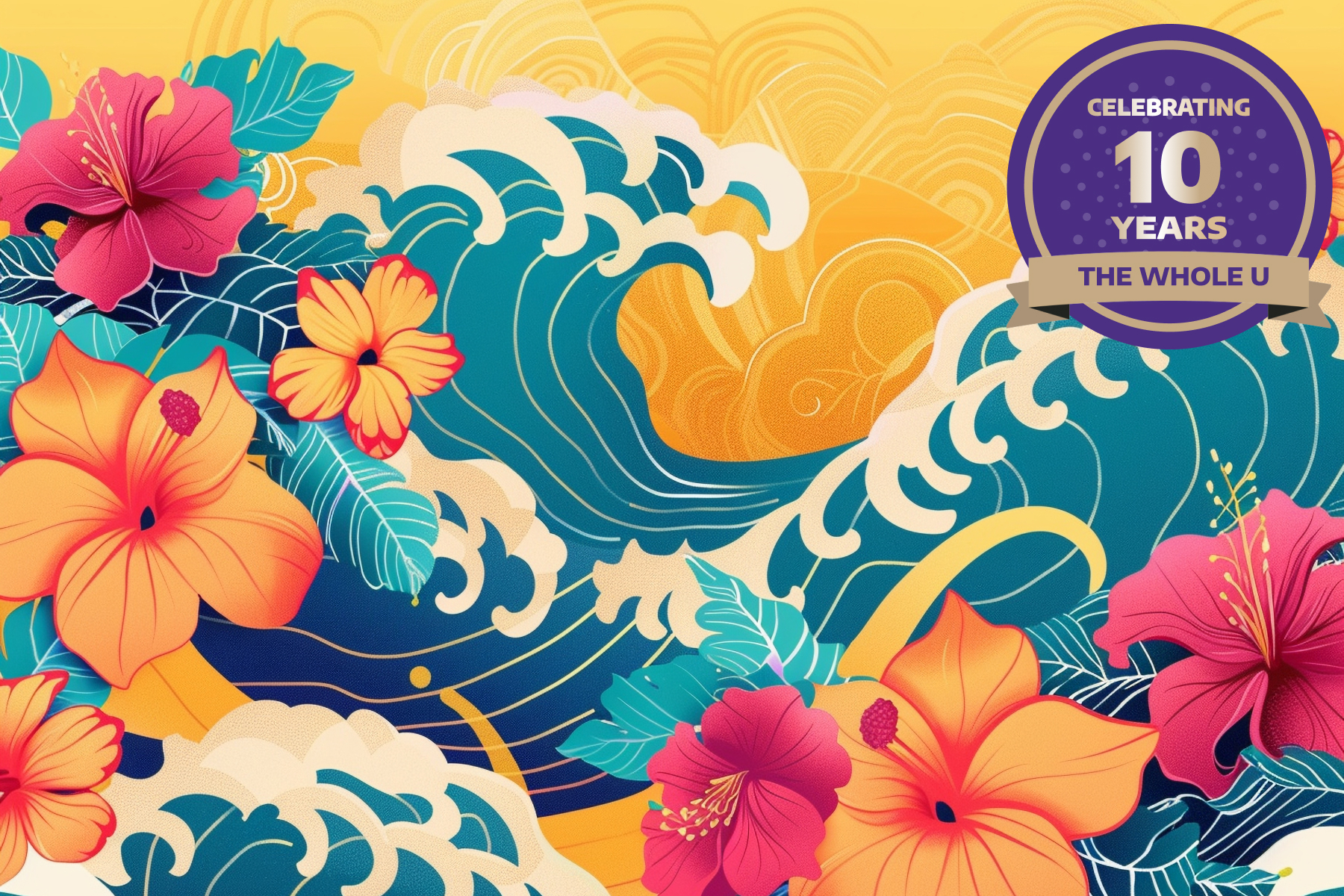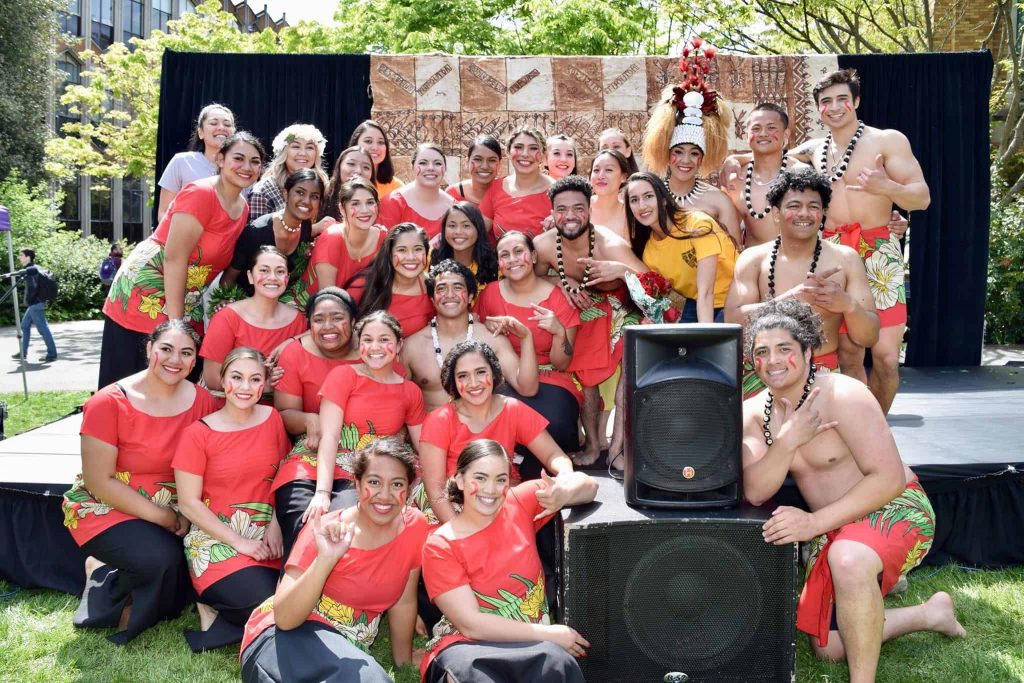
Celebrate AANHPI Heritage Month
May is National Asian American, Native Hawai’ian and Pacific Islander (AANHPI) Heritage Month, an opportunity to celebrate the diverse people, cultures and communities whose contributions have greatly enriched American history, society and culture.
The United States first recognized AANHPI heritage in 1978. A week-long recognition was extended to a month-long celebration in 1992 commemorating the rich heritage of the AANHPI community. The 2024 recognition theme is “Advancing Leaders Through Innovation.”
The month of May was chosen to commemorate the immigration of the first Japanese to the United States on May 7, 1843, and to mark the anniversary of the completion of the transcontinental railroad on May 10, 1869. The majority of the workers who laid the tracks were Chinese immigrant workers.
 Did you know? The AANHPI community in the U.S. spans 26 ethnicities and has more than 67 unique languages and dialects.
Did you know? The AANHPI community in the U.S. spans 26 ethnicities and has more than 67 unique languages and dialects.
According to the U.S. Census Bureau, in 2018 there were more than 23 million Asian American, Native Hawai’ian and Pacific Islander people living in the U.S. The Asian American population is the fastest growing in the U.S. and is expected to continue over the next decade.
In the Pacific Northwest, AANHPI communities have long been integral to our region’s history and cultural heritage, with documented settlements in the area dating to the early 19th century. Some historical records suggest the presence of Pasifika peoples (Native Hawai’ians and Pacific Islanders) as far back as the 18th century, prior to the first Asian immigrations.
Seattle’s first Chinese settlers came to the Pacific Northwest in the 1860s and 1870s, providing a labor force for the booming lumber mills, fishing operations and railroads of the region. The region’s Native Hawaiian and Pacific Islander community is made up of people with ethnic backgrounds connected to Hawaii, Guam, Samoa or other Pacific Islands. Today, Washington state has the third largest NHPI population, behind Hawaii and California.
This month — and every month — we celebrate the many ways that AANHPI people enrich our communities.
Get involved at UW
From the Hui Hoaloha ‘Ulana- Hawai’i Club to the Filipino American Student Association to the Polynesian Student Alliance, the UW is home to dozens of student organizations that not only bring people into community to
Hui Hoaloha ‘Ulana – the UW Hawai’i Club
Translated as “a group woven together in friendship,” Hui Hoaloha ʻUlana weaves lifelong bonds among students brought together by their love of or interest in Hawaiʻi. Everyone in the University of Washington community is invited to participate in various social and cultural events, as well as sharing the club’s aloha spirit in Seattle.
UW Asian American & Pacific Islander Faculty & Staff Association
Recognizing and honoring the rich ethnic, cultural and social diversity of UW Asian and Pacific Islander American faculty and staff, the purpose of the APIAFSA is to create, engage, maintain and sustain a visible and supportive APIA community. Follow the group on LinkedIn or Facebook.
May 10, 8 a.m. – 4 p.m., HUB
Poly Day is a celebration of Polynesian culture hosted by the UW Polynesian Student Alliance. The event will highlight the strength and active presence of the Pacific Islander community on campus and will feature UW’s Micronesian Islands Club, workshops and performances from colleges and universities around Washington state.
Don’t miss: At noon, student members of various Pacific Islander associations will perform traditional dances that honor their heritage.
Learn more
Visit Seattle’s Chinatown Historic District, which has been the focal point of the city’s Asian community since the early 20th century and is in the National Register of Historic Places. Chinatown was the heart of the most extensive Asian community in Washington state and the size and vitality of the district attracted thousands of immigrants to Seattle.
 The Wing Luke Museum of the Asian Pacific American Experience in Seattle’s Chinatown-International District is the only community-based museum in the U.S. dedicated exclusively to the history of pan-Asian Pacific Americans. Wing Luke is hosting a variety of events for AANHPI Heritage Month.
The Wing Luke Museum of the Asian Pacific American Experience in Seattle’s Chinatown-International District is the only community-based museum in the U.S. dedicated exclusively to the history of pan-Asian Pacific Americans. Wing Luke is hosting a variety of events for AANHPI Heritage Month.
The Seattle Asian Art Museum, in an exquisite 1933 Art Deco building in lush Volunteer Park, is Seattle Art Museum’s original home and the location of its extensive collection of Asian art. It’s also home to the Gardner Center, which hosts lectures, readings, performances, films and events with visual artists to present diverse perspectives on Asia’s many cultural traditions and contemporary issues.
The Panama Hotel, a National Historic Landmark, is situated in Seattle’s Nihonmachi (Japantown) before World War II. The hotel has a long history of providing temporary lodging for immigrants from Japan who immigrated to Seattle and houses one of only two intact sentos (public bathhouses) in the United States.
Join the Asian Pacific Islander Heritage Month Celebration, featuring a wide array of performances, culture and food at the Seattle Center Armory on May 4 from 11 a.m. to 6 p.m. as part of Seattle Center’s Festál series.
 The Bainbridge Island Japanese American Exclusion Memorial is a poignant testament to the plight and resilience of Japanese Americans who were incarcerated during World War II.Check out University Bookstore’s Top 5 Reads for AANHPI Heritage Month (from 2022) and discover Southeast Asian and Pacific Islander student groups on campus.
The Bainbridge Island Japanese American Exclusion Memorial is a poignant testament to the plight and resilience of Japanese Americans who were incarcerated during World War II.Check out University Bookstore’s Top 5 Reads for AANHPI Heritage Month (from 2022) and discover Southeast Asian and Pacific Islander student groups on campus.
Discover the cultural significance of various flowers native to Asia and the Pacific Islands of Melanesia, Micronesia and Polynesia (which includes Hawaii) from UW Medicine’s The Huddle.
Engage with No Longer Invisible, a project launched in 2014 for UW students, staff, faculty and alumni within AANHPI communities to voice their stories and experiences of identity, culture, spirituality, language and tradition.
Listen to Our Stories Are Your Stories (#OSAYS), a partnership with the Wing Luke Museum, that created an oral history archive of the AANHPI experience in response to a rise in anti-Asian racism and xenophobia during the Covid-19 pandemic.
Follow the #StopAsianHate and #BreakingAPABias hashtags to stay updated on current events.
Take a look at the Asian Pacific American Heritage Month site compiled by the National Gallery of Art, Library of Congress, Smithsonian’s, National Archives, United States Holocaust Memorial Museum, National Part Services and National Endowment for the Humanities.
Check out the National Park Service exploration of AANHPI stories.
Support
Consider making a one-time contribution or setting up payroll deduction to a UWCFD member organization working to advance human rights and justice for Asian Americans, Native Hawai’ians and Pacific Islanders:
API Chaya – educating and mobilizing South Asian, Asian, Pacific Islander and other immigrant communities to end gender-based violence, human trafficking and exploitation. Volunteer with Natural Helpers education and advocacy program (charity code 0320806).
Asian American Justice Center – advancing civil and human rights for Asian Americans and building and promoting a fair and equitable society for all (charity code 1479276).
Asian Counseling and Referral Service – offering an array of human services and behavioral health programs to Asian Pacific Americans. Volunteer for events, voting drives, food bank and community farm. (charity code 0320807).
Asian Pacific Islander American Scholarship Fund – providing college scholarships for Asian Americans and Pacific Islanders, developing future leaders who will serve as role models in their communities (charity code 1480374).
Helping Link – empowering refugee/immigrant children and families with social adjustment, stability and self-sufficiency, while nurturing community service and youth leaders (charity code: 1478529).
Interim Community Development Association (ICDA) – promoting, advocating and revitalizing the Chinatown/International District and other Asian/Pacific Islander communities in the Puget Sound (charity code 0316558).
International Community Health Services (ICHS) – providing culturally and linguistically appropriate health services to improve the health of Asian Pacific Islanders and the broader community (charity code 0456713).
SafeFutures Youth Center – delivering comprehensive social and cultural services for Southeast Asian, East African, African American and Pacific Islander youth and their families (charity code 0350027).
Wing Luke Asian Museum – engaging Asian Pacific Americans and the public in APA art, history and culture through exhibitions, outreach research and publications (charity code 0315161).
The UW Combined Fund Drive and The Whole U stands in solidarity with the Asian American, Native Hawai’ian and Pacific Islander (AANHPI) communities. We recognize and support the struggle of AANHPI people to be seen, respected, heard and protected, and denounce all forms of discrimination, harassment, and racialized violence against AANHPI people.
